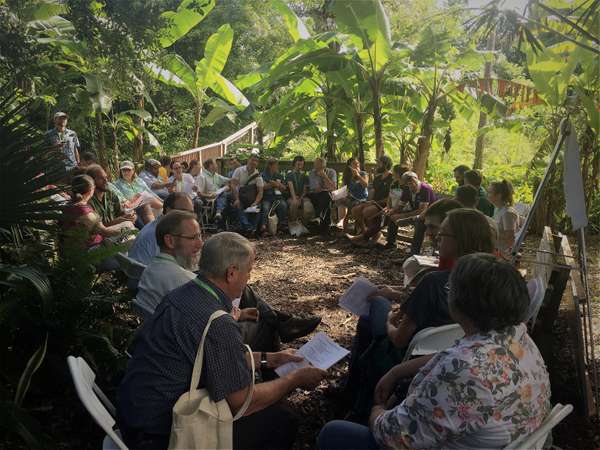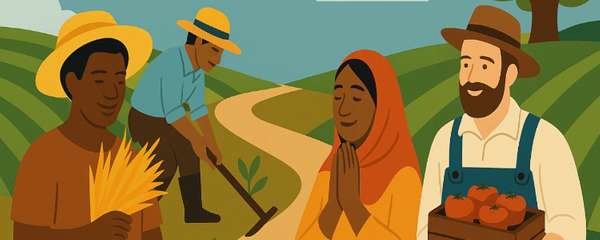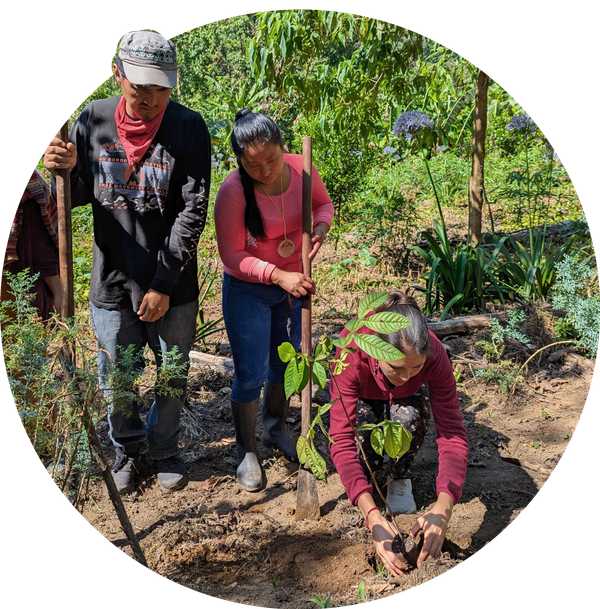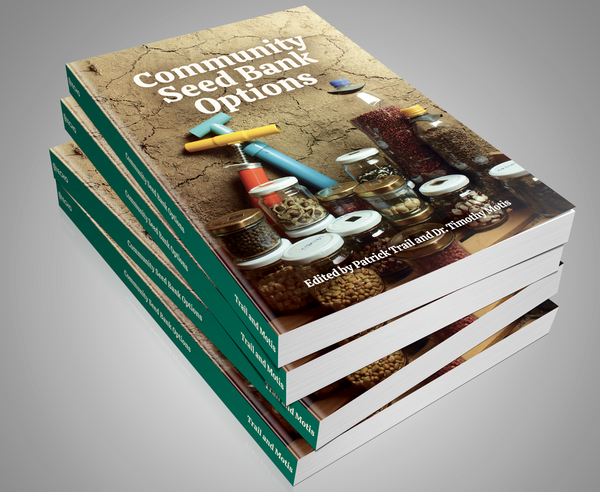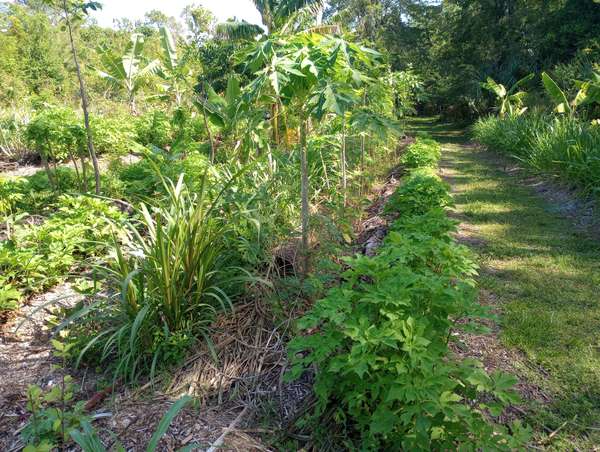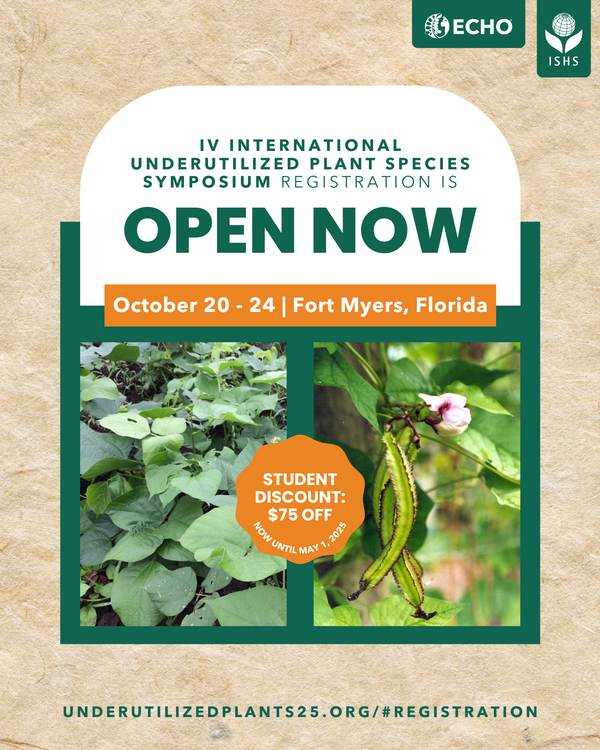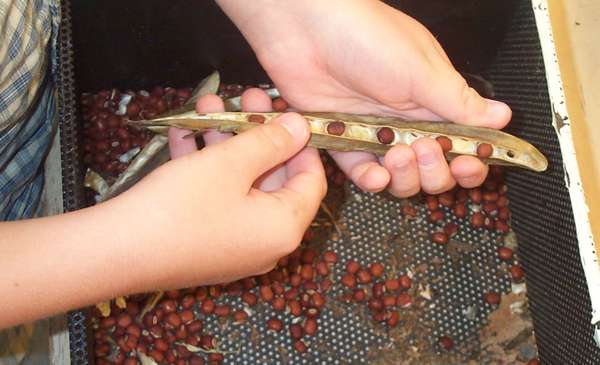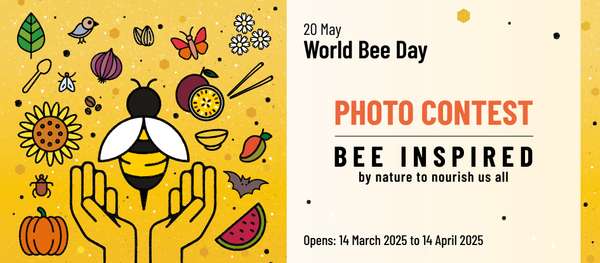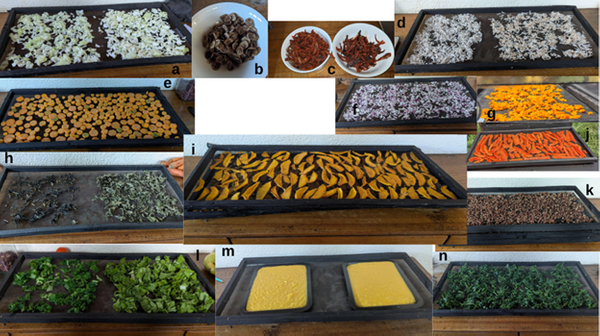Mises à jour de ECHOcommunity
Conference Presentations Now Available! 2025-06-03
ECHO International Agriculture Conference 2024 was a rich time of learning and discussion about important topics that affect small-scale farmers around the world! We are excited to share that the presentations are now available for you to view and share. Some presentations you may enjoy include:
- Smallholder management of fall armyworm
- Best practices in promoting livestock among the poor
- Can innovation end poverty?
2025 ECHO International Agriculture Conference Registration is Now Open! 2025-05-27
Registration is now open for the 2025 ECHO International Agriculture Conference!
Fort Myers, FL | November 11-13, 2025
National Gatherings in Central America 2025-05-16
We are very happy to announce that within the current implementation process of our Regional Impact Center of ECHO in Central America and the Caribbean, we have scheduled national gatherings in Honduras, Guatemala, and Nicaragua, with the aim of exchanging information and establishing a dialogue with you, in order to build a participatory working and training agenda. The gatherings are scheduled for the following dates:
- Honduras - May 27 in Tegucigalpa, at the offices of ANAFAE (Colonia Miraflores)
- Guatemala - June 4 in Cobán at Centro de Formación y Capacitación Noj and June 10 in Guatemala City at the headquarters of Casa del Alfarero.
- Nicaragua - June 17 and 18 in Matagalpa, at Rayo de Sol.
New ECHO Book Release: Community Seed Bank Options 2025-05-06
Community Seed Bank Options
edited by Patrick Trail and Timothy Motis
Buy now as an eBook or paperback
"Community Seed Bank Options is a practical, comprehensive guide to the hands-on management of community seed banks. It features illustrative examples and proven methods to walk readers through each step while clearly explaining the science and biology behind seed saving. This book is an essential resource for anyone immersed in food sovereignty, seed stewardship or community-led development. Congratulations to the ECHO team for delivering such a valuable and accessible toolkit."
Ellie Lovett, Director of Project Morro
Community Seed Bank Options is the compilation of many individual research experiments, papers, ideas, technologies, and experiences offered over several years by individuals working to further best practices in community seed banking, seed saving, and genetic preservation.
While ECHO has collected and validated these best practices over many years, ECHO does not take credit for each individual innovation, as many come from network members (maybe even you!). The book features images and graphics that explain, illustrate, and simplify much of the information.
Upcoming July TAD Trainings - Bundle & Save! Early Bird Ends Soon! 2025-04-29
We have two Tropical Agriculture Development trainings coming up in July at ECHO North America!
July 7-11 : Introduction to Tropical Agriculture Development
This is a 5-day course with a variety of topics that focus on improved food security and agricultural livelihoods for small-scale farmers. For more information and to register click the link below:
July 15-18: TAD II - Syntropic Agroforestry
This is an interactive 4-day agroforestry training session. Learn how to cultivate abundant food and timber in a system that mimics a natural forest. This course will cover the principles and practices needed for a beginner to plant his/her own agroforest. For more information and to register for this course click the link below:
Bundle & Save!!
You can register for both trainings and stay at ECHO for two weeks at a discounted rate! Use the link below to register for both traings. If you register before May 7th you will get an additional discount with our Early Bird price!
Early Bird Ends Soon! Register soon and Save! 2025-04-23
IV International Symposium on Underutilized Plant Species
Fort Myers, FL | October 2025
Did you know you can save on registration costs for the upcoming ISHS Symposium if you do so early? You receive $75 off with our early bird discount! Don't miss out on a chance to save! Register for this international event today. If you are currently enrolled in a program of study, you are eligible for our student registration rate.
ECHO Celebrates Earth Day 2025! 2025-04-22
Earth connects us—to our Creator, to ourselves, to our food, and to one another. As vast and complex as creation is, we’ve only begun to understand its depth. This mystery invites awe, care, and wonder—especially for those of us learning to steward it well. Thank you for being a vital person in the ECHO Community who cares for the Earth in a unique way!
IFOAM International Day of Seeds Webinar: Our Seeds, Our Future April 23rd 2025-04-15
Protecting Biodiversity and Farmers' Rights
Seed production is vital to the soverignty and vitality of the smallholder farmer and communities.
"To mark the International Day of Seeds, IFOAM is bringing together a panel of global experts for an insightful discussion on protecting seed sovereignty, resisting corporate influence, and strengthening farmers’ rights. From grassroots movements to innovative seed networks, speakers will share strategies to ensure a future where farmers, breeders, and communities thrive."
The webinar will be recorded so that those who wish to, can watch it at a more convenient time.
FAO World Bee Day 2025 Photo Contest ends April 14th! 2025-04-08
Capture the magic of bees and other pollinators as they keep our ecosystems thriving! This is your chance to showcase the beauty and vital role of bees and other pollinators in nature, agriculture, and sustainability.
📅 Submission deadline: 14 April 2025
📅 Winners announced: 20 May 2025
🏆 Prizes & Recognition:
- Top 3 photos featured on FAO’s official social media
- Pictures displayed at the 2nd International Forum for Action on Sustainable Beekeeping and Pollination in Ethiopia
- Certificate of recognition & exclusive FAO merchandise
🌍 How to Enter:
- Capture a photo that embodies the theme: "Bee Inspired by Nature to Nourish Us All" · Complete the online entry form with a description of your photo
EDN Numéro 169 Maintenant disponible 2025-04-01
Sommaire
- Les séchoirs solaires directs: Une solution simple et abordable pour le séchage solaire des aliments
- Échos de notre réseau: Le greffage de l’avocatier en plein champ et Fossés à compost à base d’herbe à éléphant et/ou de tiges de bananiers
- De la Banque de semences de ECHO: Le haricot matki (Vigna aconitifolia), une légumineuse polyvalente pour les climats arides
- Livres, Sites Web, et Autres Ressources: Nouvelle publication - Community Seed Bank Options [Options de banques de semences communautaires
Les séchoirs solaires directs
Une solution simple et abordable pour le séchage solaire des aliments
James Dontje
Extrait:
Nous avons séché avec succès une variété de fruits et de légumes avec ce séchoir, en utilisant des thermomètres, des balances de cuisine et de petits capteurs d’humidité relative pour « calibrer » le séchage de manière à ce que de simples indices visuels et de texture puissent être utilisés pour déterminer quand l’aliment est suffisamment sec pour être stocké.De nombreux essais ont été réalisés avec des tranches de mangue - elles sont plus difficiles à sécher suffisamment dans un environnement humide, et si nous pouvons bien les sécher (et nous y sommes parvenus), nous pensons pouvoir sécher à peu près n’importe quel autre aliment.
